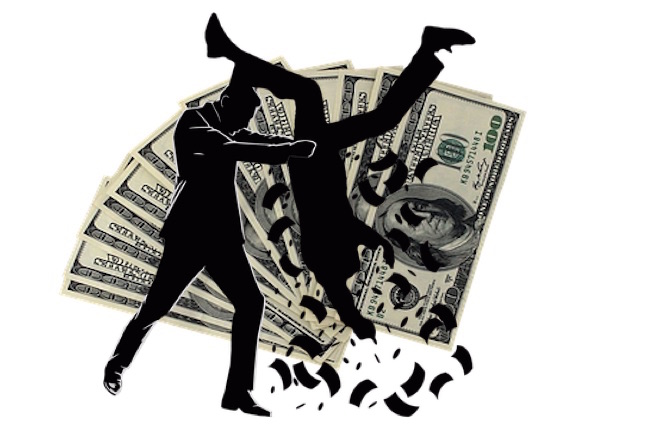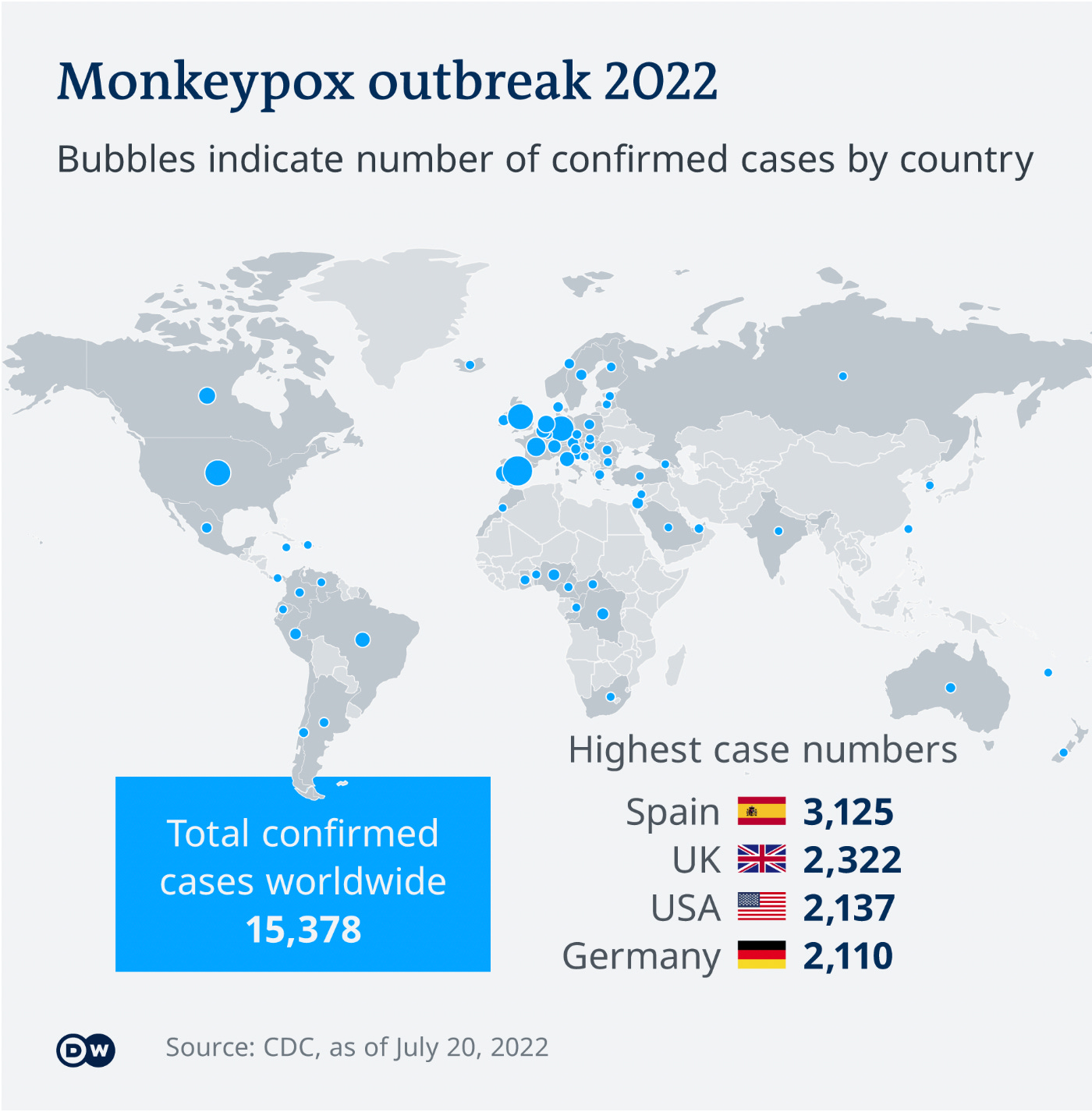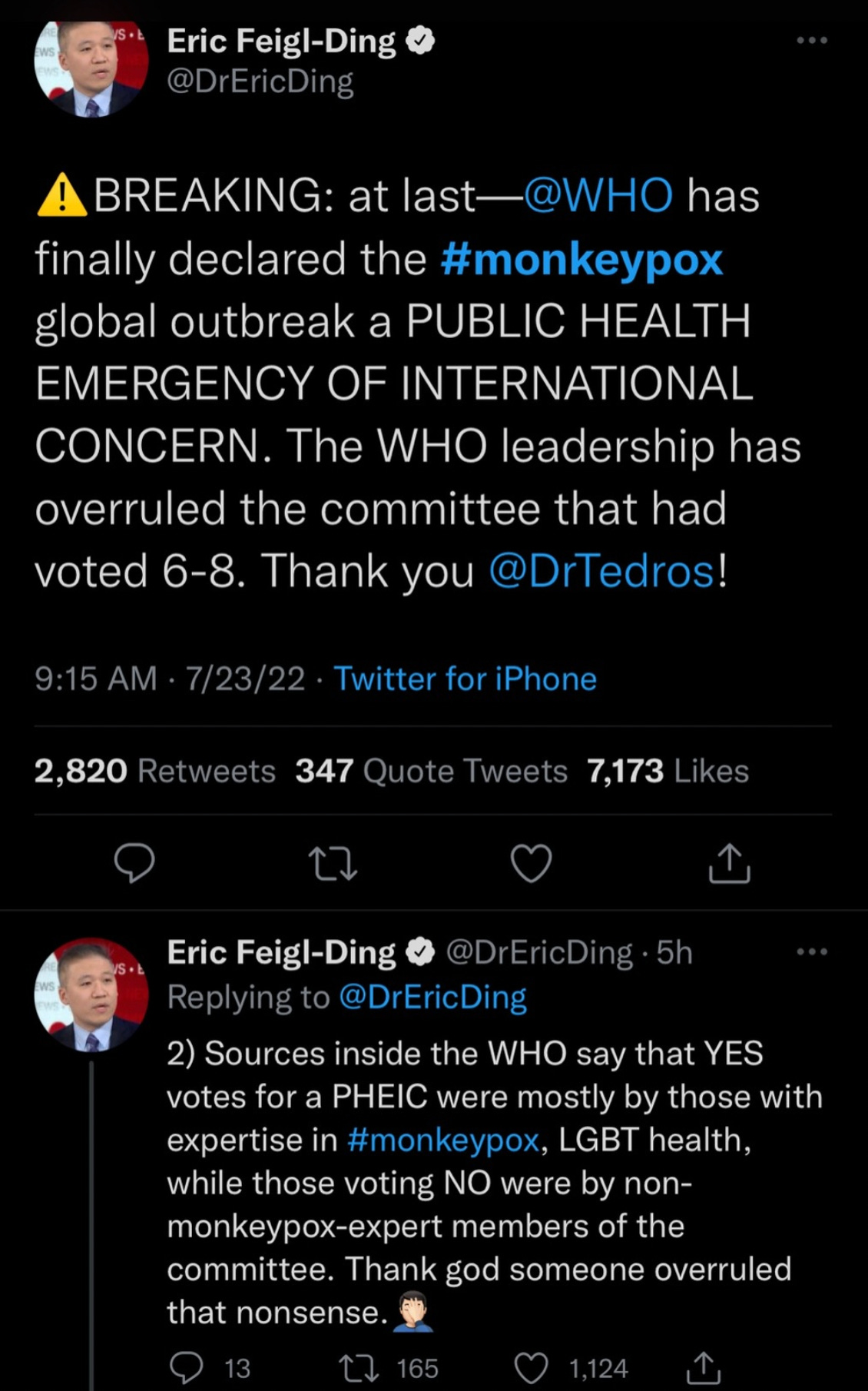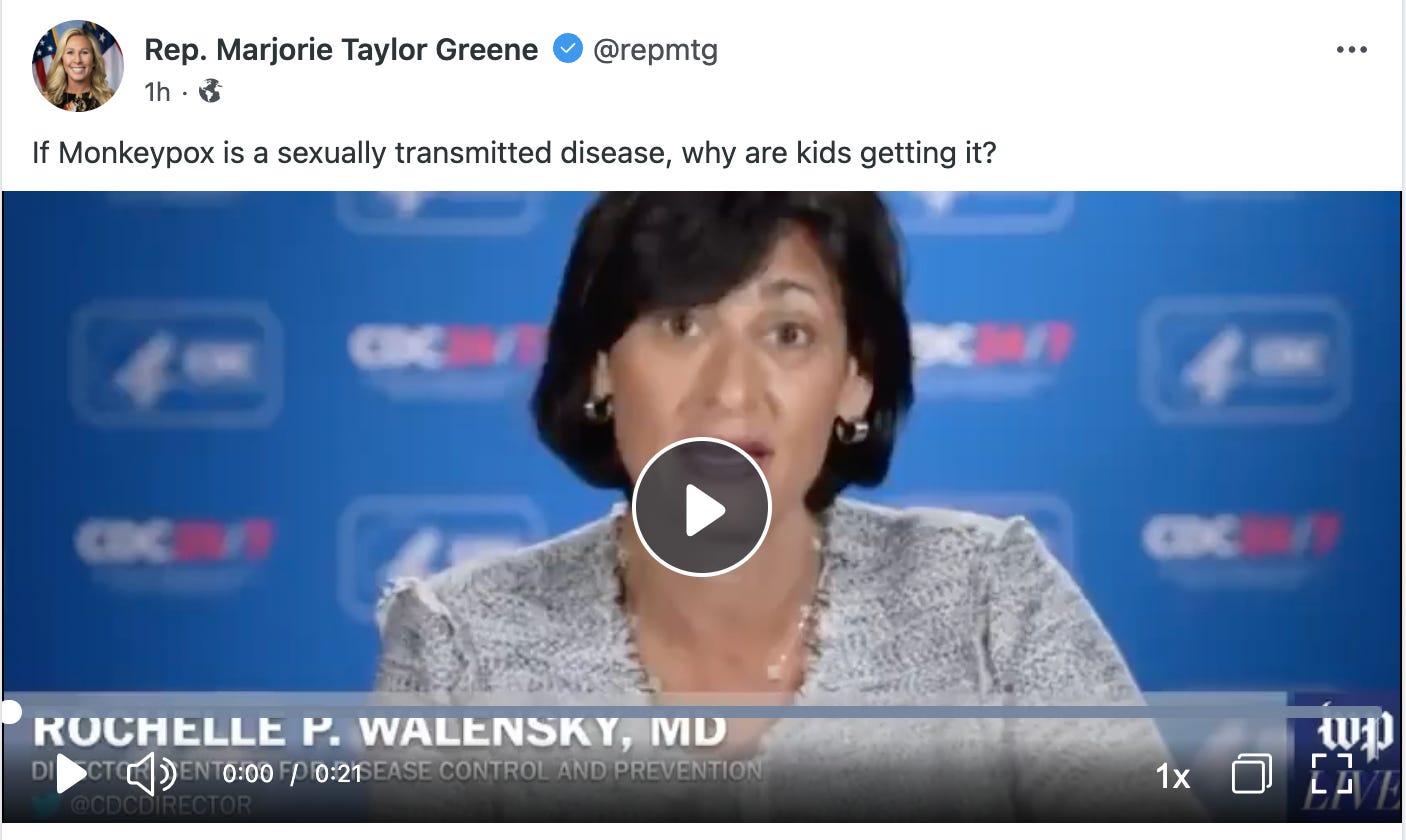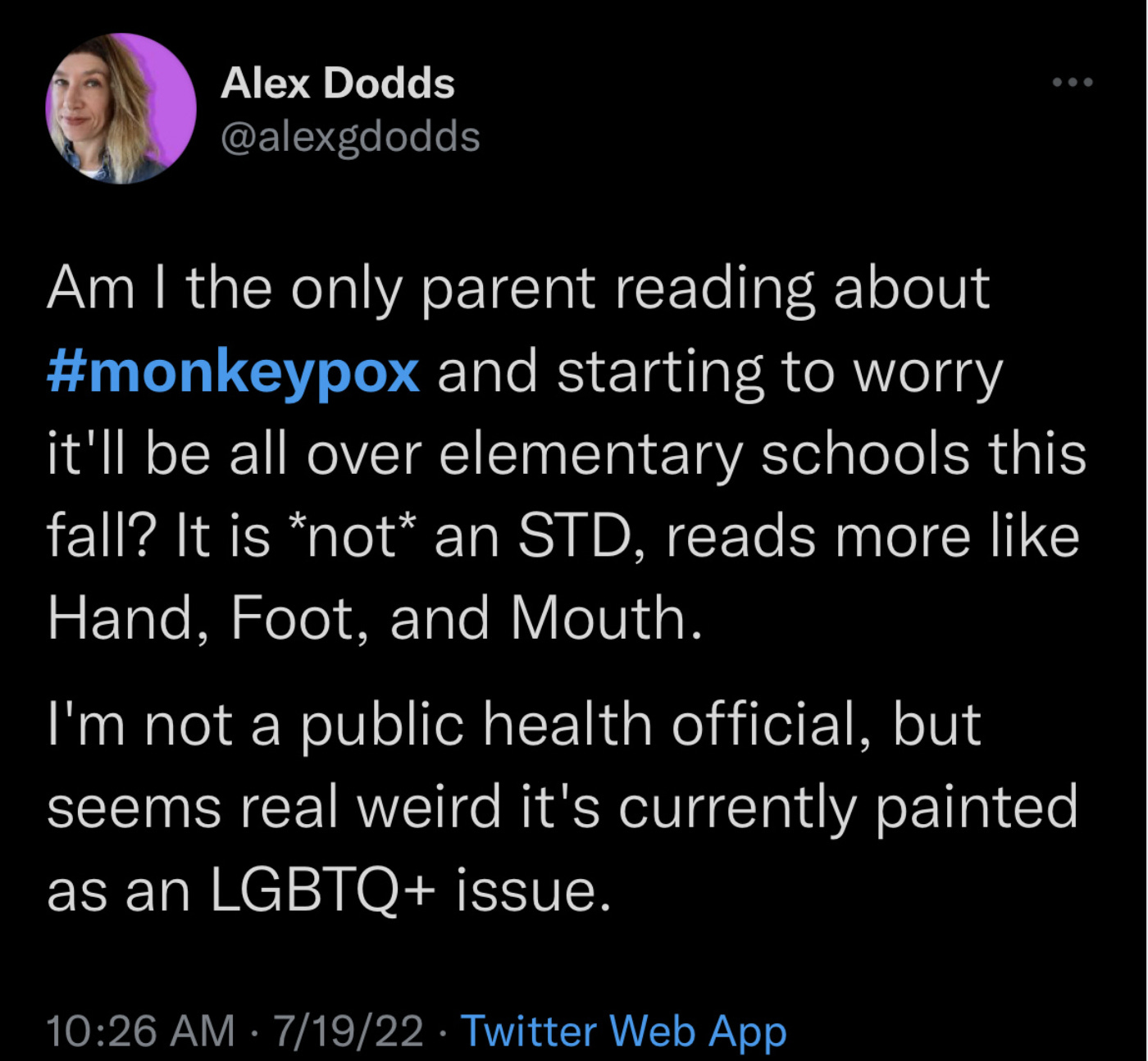Monkeypox or Moneypox? by Robert W Malone MD, MS – SubStack
Tedros overrules his panel and declares Monkeypox a Public Health Emergency of International Concern
In a move that is sure to trigger widespread discussion concerning the independence, objectivity and wisdom of granting authority to the WHO to manage global infectious diseases responses, the monkeypox outbreak has been declared a Public Health Emergency of International Concern (PHEIC) by the World Health Organization. The declaration was made unilaterally, in direct contradiction of independent review panel advice, by WHO director Tedros Adhanom Ghebreyesus. Tedros made the declaration despite a lack of consensus among members of the WHO’s emergency committee on the monkeypox outbreak, and in so doing overruled his own review panel, who had voted 9 against, 6 for declaring the PHEIC. Tedros asserted that this committee of experts (who met on Thursday) was unable to reach a consensus, so it fell on him to decide whether to trigger the highest alert possible. Any objective outside observer would conclude that the committee failed to endorse moving to a PHEIC. When a similar meeting was previously held on June 23, 2022, the committee resolved by consensus to advise the WHO Director-General that at this stage the outbreak should be determined to not constitute a PHEIC. An official United Nations article summarizing this can be found here. When the group met in June, the breakdown was 11 against and three for. It is not clear what has changed in the intervening four weeks to justify the change in Tedros’ position, although comments from internet pundits raise concerns that the unilateral action was taken in response to pressure from special interest advocacy groups.
There has also been a sudden burst of coordinated social media postings raising concerns regarding Monkeypox risks to children, which raises the question “If Monkeypox is a sexually transmitted disease, why are kids getting it?”

